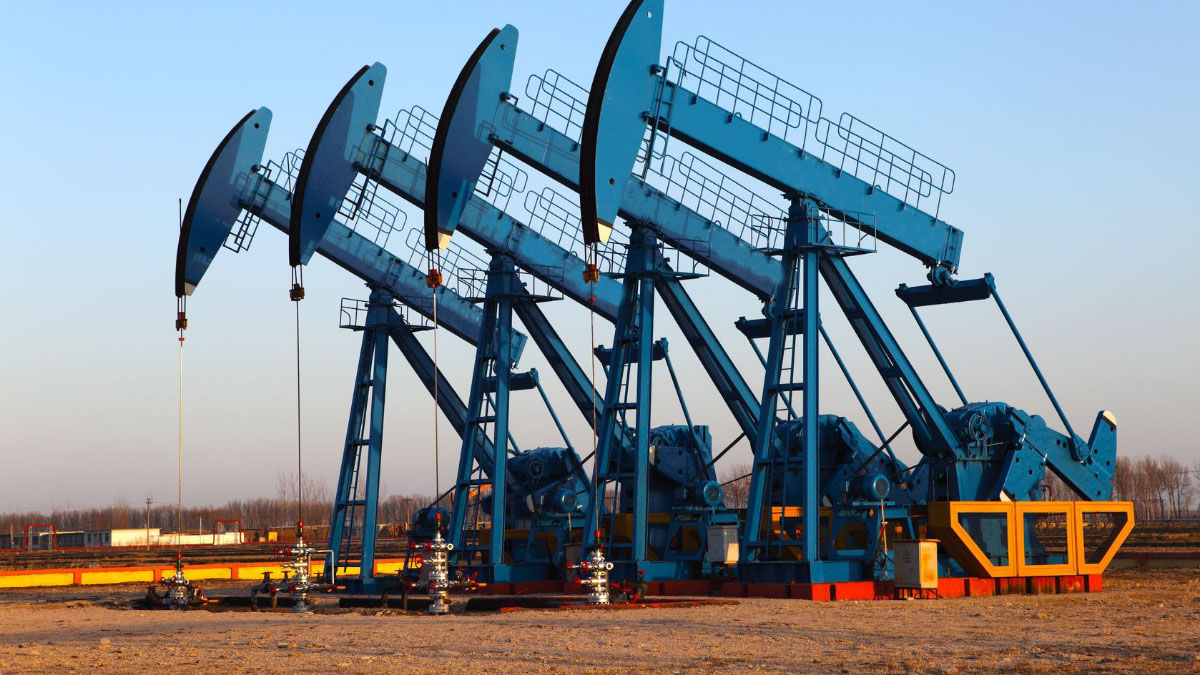While the American oil and gas sector was in the midst of its renaissance over the last decade, it was difficult to imagine a situation in which profits, jobs, and domestic energy production would slow down in any significant way.
Booming oil production was transforming tiny towns in the coldest reaches of North Dakota into some of the nation’s most valuable real estate. And thanks to advanced extraction processes and the discovery of vast new reserves, the United States surged to become the world’s top producer of natural gas. The industry seemed to be on an upward glide path with no end in sight.
Because of that spectacular growth, the oil and gas industry stands as one of the country’s most important sources of employment, wages, revenue, and economic opportunity. Nowadays, 10 million Americans look to the sector for their livelihoods. But for the first time in a long time, with crude oil and natural gas prices well below the levels that helped drive the boom, it’s clear that the industry isn’t immune to the pressures of a down market.
The energy industry, like any commodity producer, is accustomed to coping with business cycles and market price fluctuations. That resilience is threatened, though, by ill-conceived, counterproductive energy tax policies—like those on the table in Alaska.
Few people are likely to think that the oil industry is strapped for cash. Indeed, with billions in profits reported every quarter, the nation’s oil companies remain behemoths in the business world, dwarfing almost every other sector. What’s too often overlooked, however, is the astonishingly large capital investment required to generate those profits and shareholder returns.
Oil companies invest tens and even hundreds of billions of dollars into the exploration and development of oil and gas resources every year. That investment carries a high risk that very frequently yields nothing. Drilling a well is a gamble, and gambling is a normal part of the oil industry’s daily operations. When the oil gushes from a well, the gamble pays off and the investment’s returns are big. When the well turns out to be dry, the gamble doesn’t pay off and the losses are equally big. Adjusted for such risk, the rates of return to investments in oil and gas are only slightly above the average profit rate across all U.S. industries.
The process of extracting crude oil is becoming more and more costly as the industry seeks to develop harder-to-access reserves. The low-hanging fruit has been picked. In today’s low-price environment, those higher costs become more difficult to cover. And as the industry faces more and more difficult choices in today’s market, the prospect of production cuts—and the loss of the gains that have been made over the last decade—becomes very real.
That’s why the policy discussion underway in Alaska is so worrisome. Faced with a sagging state economy, Alaska has a serious budget deficit driven in part by reduced revenue from the oil and gas sector (thanks to lower crude prices) but mostly by profligate state spending. And so state lawmakers in have set out to raise the tax burden on Alaskans, including introducing a state sales tax and raising the excise tax on gasoline.
Specifically, the legislature passed a bill signed by the governor that retroactively ends certain refundable corporate income tax credits taken by the oil and gas industry. To call this “bad tax policy” would be extremely generous. Higher tax bills promise to exacerbate the problems already created by lower market prices and higher production costs, making the Alaskan oil industry less competitive and, in doing so, making the oil industry less likely to place big bets in the State of Alaska. Some companies already have indicated that continued operation in Alaska will not be possible.
For a state that depends on the oil business for around 90 percent of its tax revenueand a third of its jobs, that’s very bad news indeed.
The oil industry can weather shifts in the market. It has the capital to adapt to high production costs. But it can’t do those things in an uncertain or even hostile public policy landscape.
Alaska needs the oil industry; so do we all. It’s time for Alaska’s policymakers to recognize that punishing a critical contributor to the state’s economy is a recipe for continued stagnation.











